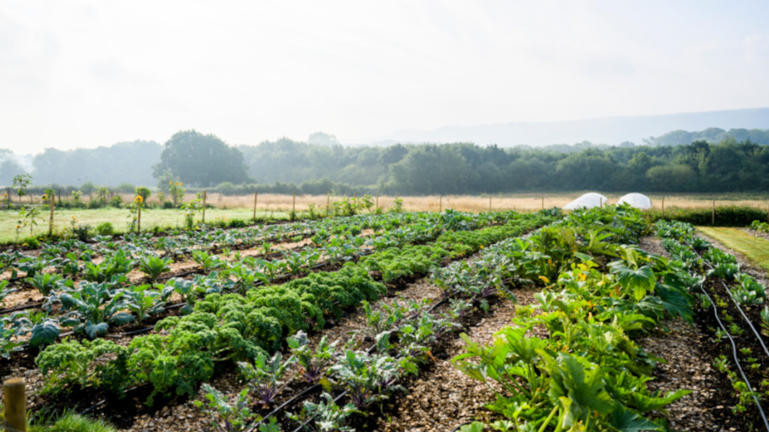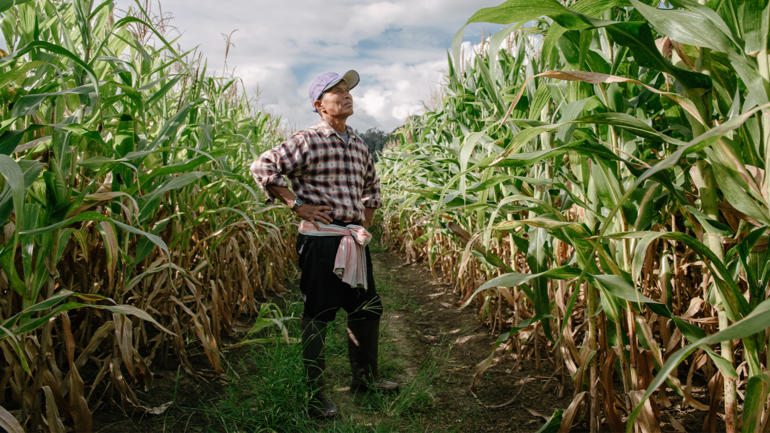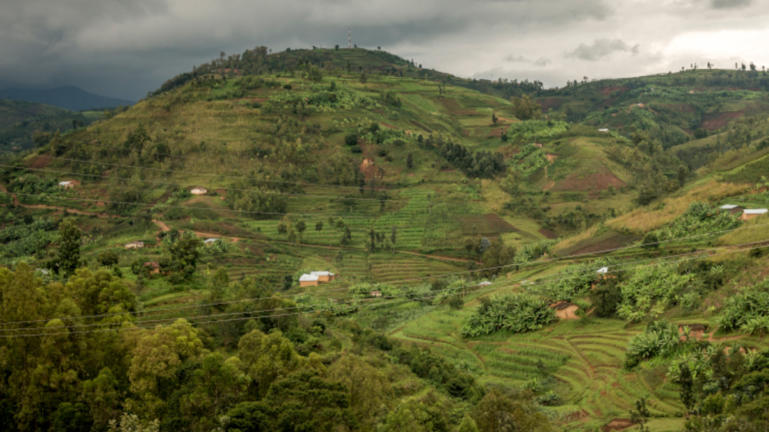After a year and a half of intense work by so many, the first ever UN Food Systems Summit (UNFSS) took place on 23 September. Taking a moment to reflect, it is remarkable what was accomplished despite the event’s virtual setting. More than 150 nations came forward with national pathway documents, with consistent ambitious messaging shared by all participating stakeholders. We must recognize a huge step forward for awareness and action toward systems transformation.
The diversity of stakeholders at the summit and the level of ambition they displayed are real proof that change is underway. The Summit process included multi-stakeholders’ initiatives led by civil society, farmers, women, youth and indigenous groups. There are still many challenges ahead, but I am optimistic after witnessing a focus on collective and collaborative action. There is now confirmation that another Summit will be held in two years during which participants can demonstrate progress. WBCSD will continue its impactful work to ensure collective efforts help create food systems that provide healthy, nutritious, affordable food for all within planetary boundaries.
WBCSD’s President and CEO, Peter Bakker, reflected on the Summit, “this wasn't just about food; there is no system where the climate emergency, the loss of nature and mounting inequality come together as they do in the food system. Incremental change is no longer enough, a wholesale transformation of our food systems is now urgent and critical to deliver the SDGs and systemic change. Creating equitable, net-zero and nature-positive food systems that can nourish all people is everyone's business.”
WBCSD played a leading role in helping drive collective business engagement and commitments through the UNFSS process. Peter Bakker was appointed by the Secretary-General of the United Nations as an advisor to the UNFSS Secretariat. In that capacity, he convened and chaired the Private Sector Guiding Group (PSGG), comprising multiple business associations, and held quarterly CEO consultations to help coordinate business action. The sixth of these is scheduled for 15 November, after COP 26, to summarize actions and direct next steps for business leadership.
As part of this consultation process, the Business Declaration for Food Systems Transformation was announced at the UNFSS Pre-Summit in Rome. The Declaration sets out the business actions and ambitions required to accelerate the transformation to an equitable, net-zero and nature-positive food system that can nourish all people. More than 220 executives signed the declaration ahead of the main Summit.
Over 300 commitments were presented by member states, civil society, indigenous peoples, youth and the private sector at the Summit, together with the national pathway documents. It was clear that leaders are ready to act on urgent issues, such as eradicating hunger and malnutrition which still affect nearly one in three people in the world (2.37 billion did not have access to adequate food in 2020). For example, 42 companies have already pledged USD $345 million across 34 priority countries to the Zero Hunger Private Sector Pledge. By pledging, they are committed over the next 10 years to investing in high-impact areas such as agricultural interventions to support sustainable practices that are economically viable for farmers and in water-scarce regions. All of the initiatives rising from the Summit, including the Business Declaration, will feature in the UNFSS Compendium and commitment registry.
During the week of the Summit, WBCSD and BCG released a new report on “True Value of food”. This paper supports the work of the True Value Coalition, a new partnership launched at the UNFSS. Individual and collective actions to recognize and operationalize the true value of food are now needed to change food systems for the better, to move from borrowing from coming generations to investing in a shared future.
Working toward the next Food Systems Summit
Following the Summit, PSGG contributions to multi-stakeholder coalitions of action will continue. WBCSD will focus our continued leadership in:
- Decent Work and Living Incomes and Wages Coalition
- Soil Health Coalition
- Zero Hunger, Nourish the Future Pledge
- True Value of Food Coalition
- Healthy Diets from Sustainable Food Systems
- Good Food Finance Network
For the next Summit in 2023, it is likely that the Rome based agencies (FAO, WFP and IFAD) will form a coordination hub to develop a global framework of action on food and support governments towards the implementation of the national pathways. We expect that UNEP and WHO will also have roles to play to ensure Action Areas addressing climate and nature positive production and the health impacts are integrated.
WBCSD at this year’s remaining key moments
As we prepare for the first part of UN Biodiversity Conference (COP 15) in Kunming, China, in October, UN Climate Change Conference (COP 26) in Glasgow, UK, in November and the Nutrition for Growth (N4G) Summit in Tokyo, Japan, in December, WBCSD will continue to advocate for more accountability and urgency to successfully transform the way we produce and consume food.
During the first part of COP 15, I will speak at the Eco Civilization Forum to ask for an ambitious nature policy framework that puts in place clear science-based targets, the right incentives and support mechanisms to shape business and government actions towards nature positive agriculture.
WBCSD’s Business Manifesto for Climate Action launches at COP 26. The Manifesto is currently in first draft and will highlight 12 Action Imperatives where sustained rapid action is possible and will deliver meaningful decarbonization, including a focus on the land use sectors. Ahead of WBCSD’s 2021 Council Meeting from 26-28 October, we will be asking members to endorse the Manifesto as a guide for how the private sector should take collective action to halt the climate crisis.
Finally, the N4G Summit will conclude this “super year” by promoting ambitious targets towards healthy and nutritious diets. The N4G Summit and UNFSS are united by an ambitious goal to address all forms of malnutrition through multiple pathways and the engagement of all actors; both critical to delivering a complementary set of nutrition commitments to ensure that everyone, including the most vulnerable, have access to safe, affordable, and nutritious food by 2030, as called for by the Sustainable Development Goals (SDGs) Under the leadership of the Government of Japan, the N4G Summit is pledge-based and provides an opportunity for governments, donors, UN agencies, civil society organizations, business and other stakeholders to transform the way the world tackles the global challenge of malnutrition in all forms.
WBCSD, along with other members of the N4G Business Constituency Group, has led the development of the Responsible Business Pledge for Better Nutrition, expected to receive numerous commitments at the N4G Summit. This commits business to improving nutrition through nutrition-smart agriculture, reformulation, innovation, responsible marketing, promoting healthy eating, workforce nutrition and more. Commitments brought forward by companies and other stakeholders will help to end malnutrition by 2030.
Some of the leaders’ statements at the UNFSS:
“Food is life, food is hope. Changing food systems is not only possible but necessary, for our planet, for people, for prosperity.” – António Guterres, UN Secretary General
“We must continue to strengthen action around the Rio Conventions on climate, desertification, biodiversity. Food must be on everyone’s plate. This is particularly important as we negotiate the post-2020 Biodiversity Framework. Resilience of biodiversity in agriculture and forestry, sustainable production practices and supply chains, and the elimination of unsustainable consumption choices - all these targets in the post-2020 Biodiversity Framework draft add up to more sustainable food systems because we are securing the very foundations of these systems, that is the natural world.” - Inger Andersen, Executive Director, UNEP
“Improving the productivity and efficiency of food systems can support a strong and equitable economic recovery from the pandemic and lay the foundations for a more prosperous future. […] Reducing food losses would cost an estimated USD $30 billion, according to the Food and Land Use Coalition, but the potential return could be as much as USD $455 billion in savings and new opportunities. It could also reduce eight per cent from current global emission levels.” - Dr. Agnes Kalibata, UN Special Envoy to the FSS
Full article from Agnes Kalibata on “How transforming food systems could unlock a USD $12 trillion global windfall” was published on 23 September 2021 and is available here.
About WBCSD Vision 2050 – Food Pathway
Earlier this year we launched our Vision 2050: Time to Transform which is a framework for business action in line with the urgency of the challenges that we face if 9 billion people are to live well, within planetary boundaries, by 2050. Our world faces unprecedented challenges: a climate emergency, nature in crisis and mounting inequality. Food is one of the key pathways that have been identified to take action on the challenges. Our vision, and our work underway, is to achieve a food system that addresses these challenges and meets societal needs in 2050: “a regenerative and equitable food system producing healthy, safe and nutritious food for all.” WBCSD’s collective action on Scaling Positive Agriculture, Global Agribusiness Action for Equitable Livelihoods, and Food Reform for Sustainability and Health will continue leading the work we have together to help deliver the progress so clearly called for in the FSS.








